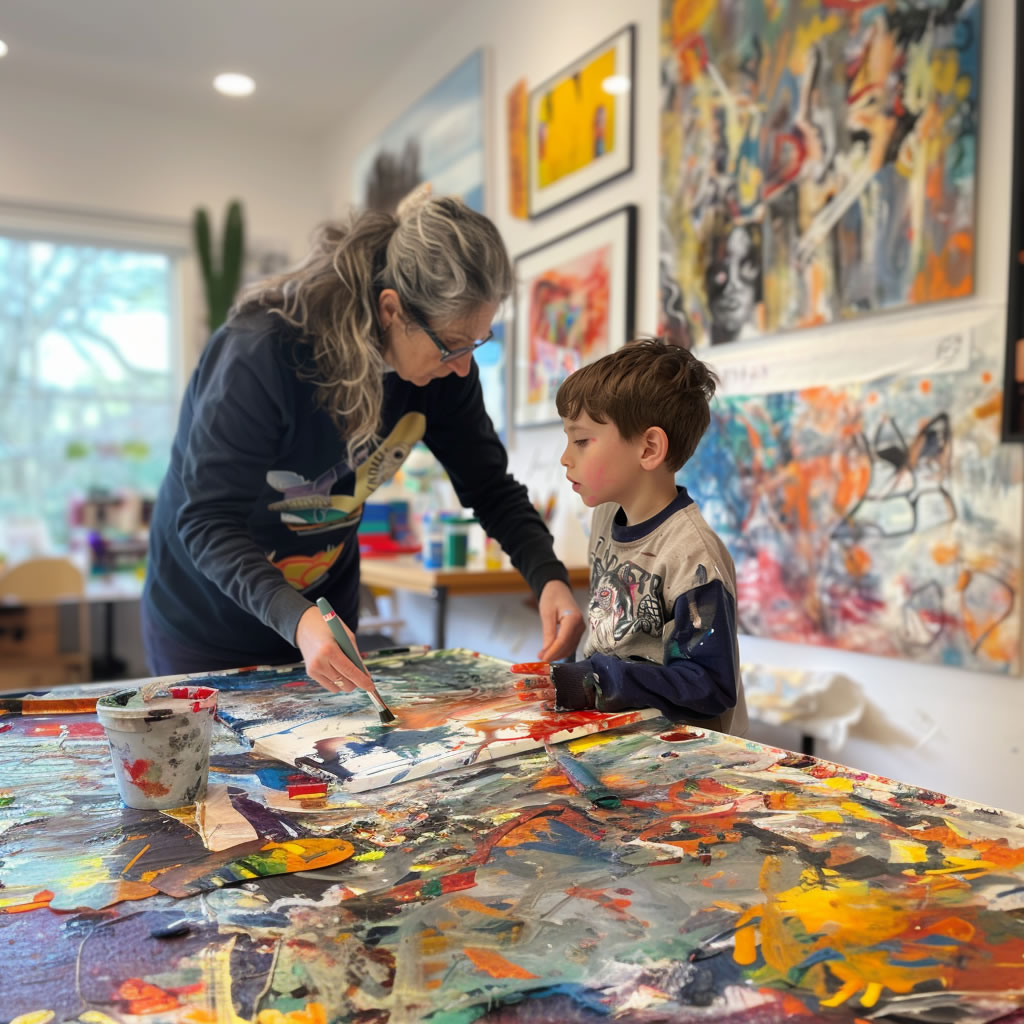
Artistic activities offer a unique and therapeutic opportunity for children with learning disabilities to express themselves and develop essential skills. The inclusive nature of arts makes it an ideal avenue for accommodating various learning styles and abilities. Engaging in artistic endeavors can provide a sense of achievement, improve fine motor skills, and offer a non-verbal mode of expression for children who might struggle with traditional forms of communication. In this article shared through Brilliant Prints, we will explore strategies and activities that can help parents foster a love for the arts in their children with learning disabilities.
Exploring Art Therapy and Inclusive Activities
Art therapy, adaptive music classes, and sensory-friendly theater performances provide enriching experiences tailored to children with learning disabilities. Participating in tactile art experiences and inclusive dance workshops can greatly enhance their self-expression and social skills. These activities are designed to be accessible and enjoyable for all children, regardless of their learning challenges. They provide a safe space where children can explore their creativity, interact with peers, and develop a sense of belonging. Art therapy, in particular, is beneficial in helping children process emotions and communicate in ways they might find challenging through words.
Encouraging Open-Ended Art Activities
Open-ended art activities are a fantastic way for children to freely explore their creativity. Encourage your child to experiment with different colors, shapes, and textures without the pressure of a specific outcome. This form of artistic expression is beneficial in developing fine motor skills and allows children to communicate emotions and thoughts non-verbally. Such activities give children the freedom to make choices, experiment, and learn through trial and error, fostering a sense of independence and confidence. Moreover, open-ended art activities can be therapeutic, helping children to relax and express themselves in a safe and comforting environment.
Creating a Supportive and Non-Judgmental Environment
A non-judgmental and supportive environment is crucial for encouraging artistic expression in children with learning disabilities. It’s important to adapt activities to each child’s strengths and interests to foster a sense of empowerment and achievement. Celebrate their efforts and creations, regardless of how they compare to typical standards. Focus on the process rather than the end product, and ensure that your child feels valued and understood in their artistic endeavors. Providing encouragement and positive reinforcement can make a significant difference in their confidence and willingness to engage in creative activities.
Accommodating Artistic Pursuits at Home
Consider creating a dedicated space in your home for your child’s artistic pursuits. This space can be a small corner equipped with art supplies or a larger room for activities like dance or theater. Designing a space specifically for their creativity not only encourages them to engage in artistic activities but can also be a meaningful addition to your home. Such renovations or room additions can potentially increase the value of your home, making it a worthwhile investment for both your child’s development and your property. Just remember to make notes of your changes and hang on to any relevant receipts.
Discovering Passion Together
As you encourage your child’s artistic journey, you might find yourself developing a passion for the arts. Engaging in artistic activities together can lead to the discovery of a shared interest, creating a deeper bond between you and your child. This shared interest could even inspire you to start an arts-related career or business, such as crafting handmade products or designing jewelry. Embracing the arts alongside your child not only supports their development but also enriches your own life.
Fostering artistic expression in children with learning disabilities is more than just promoting creativity; it’s about empowering them to communicate and connect with their surroundings. As a parent, your support and enthusiasm are crucial in helping them discover and express their unique talents. This journey not only enhances their artistic abilities but also strengthens your bond, creating enduring memories and skills that extend well beyond artistic endeavors.
